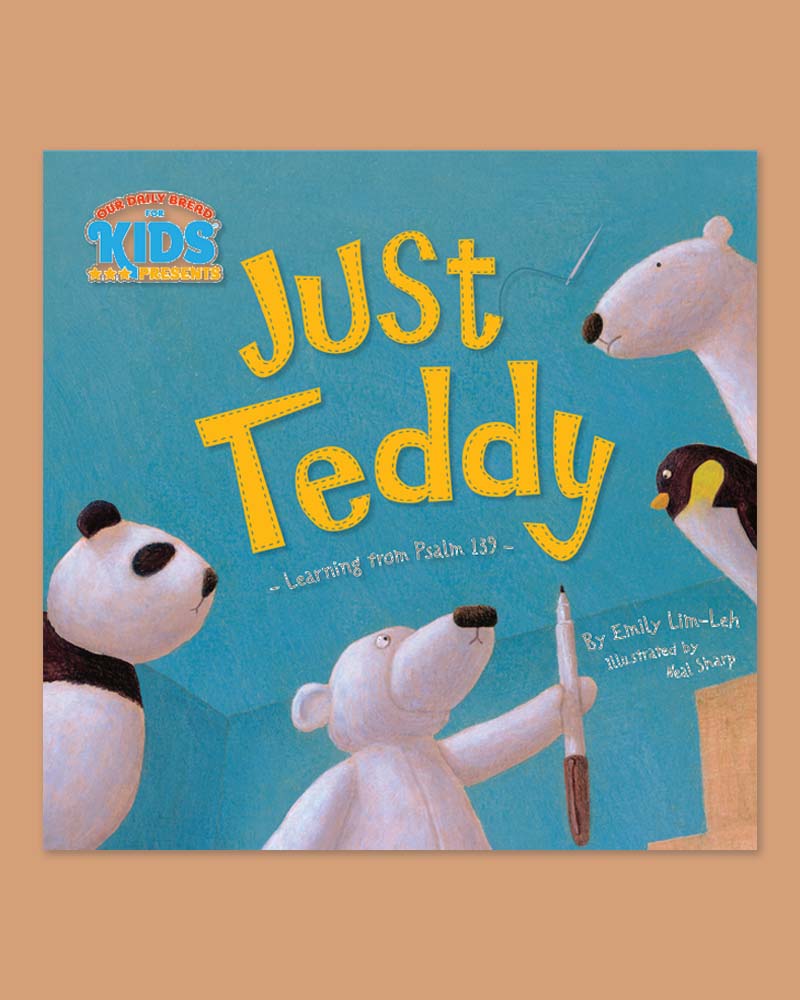
When Christian parents think of the welfare of their children, they usually think of protecting them from harmful influences and motivating them to develop habits that will help them to progress in life.
So they give considerable attention to moral instruction and education. However, there are other vital aspects of healthy growth that they should not ignore.
One of these is creating an atmosphere of fun and joy in the home through happy family traditions and celebrations.
Just Teddy:
Learning from Psalm 139
Get our latest family devotional!
Our latest devotional, Just Teddy: Learning from Psalm 139, is now available.Get a copy
Every month, we roll out a new resource for parents and children. To find out about these offers, why not subscribe to our email updates? Stay informed about the latest resources available, and be the first to get a copy!
Traditions And Celebrations
I have an uncle who is a pediatrician. When our first child was an infant, he told me something that had a marked influence on the way we reared our children. He said children need regularity.
Without regular routines, they become insecure. This was an important point to me, as my calling makes my schedule somewhat irregular.
Just as children like the world around them to feel secure, they also find special fulfillment in regular practices devoted to enjoyment that become traditions in the home.
Christian author Tim Stafford says, “It’s in our makeup as human beings to set aside certain times and days to celebrate.” We need to make such opportunities possible in our families.
Celebrations take time.
God made provision for this in the Old Testament by instituting festivals or feasts. There were private feasts, which usually celebrated an important time in a family, such as a wedding (Genesis 29:22); the weaning of a child (Genesis 21:8); the visit of a guest (Genesis 19:3); or the beginning of harvest (Exodus 23:16).
There were also the communal feasts such as the weekly Sabbath, the monthly new moon festival, and the three annual feasts: Passover, Pentecost, and Tabernacles.
These feasts placed a heavy emphasis both on family activities and on celebrating God’s provision. So the Bible instructed families to eat their festival meals with rejoicing (Deuteronomy 16:11, 14-15; 2 Chronicles 30:21). These were very lavish occasions.
The times of communal celebrations were also marked by musical expressions of joy and thanksgiving (see Psalm 8:1-4).
God decreed that the people should rejoice with music on the feast day. It is not an accident that music has become a major factor in the celebration of the two main Christian festivals, Easter and Christmas.
John Wesley said, “Singing is as much the language of holy joy, as praying is of holy desire.”
Sometimes the performance orientation of our Christmas and Easter programs can take away the joy of them, but that does not need to be the case. One can be committed to high quality without sacrificing enjoyment.
The great composer Joseph Haydn (1732–1809) was once asked why his church music was so cheerful.
He replied: “When I think upon God, my heart is so full of joy that the notes dance and leap, as it were, from my pen, and since God has given me a cheerful heart it will be pardoned me that I serve Him with a cheerful spirit.”
Make Time To Celebrate Christmas As A Family
Children need to know that they can look forward to fun times during festivals.
But Stafford points out a major challenge that busy parents face when it comes to celebrations: “Celebrations take time. Busy people don’t always take the time required. Even if it’s a national holiday . . . they want to accomplish so much that they don’t relax and celebrate. They just don’t see the point.”
This comes from an orientation that does not view tradition and celebration as God-given gifts to us.
Just as children like the world around them to feel secure, they also find special fulfillment in regular practices devoted to enjoyment that become traditions in the home.
Stafford continues: “Holidays don’t have a utilitarian purpose. There is no lesson to be learned from watching a parade. Which is part of the point. The point is there is no point. Joy is not about accomplishing something.”
When our children were with us, we developed some traditions that became meaningful aspects of our Christmas celebrations.
We set apart one day in December for shopping. As Christmas is a busy time for me, I entered the shopping day in my datebook several weeks before Christmas Day.
When my daughter was old enough, she began to plan out the day: where we would go to shop, where we would eat, and so on. We usually decorated the house on Christmas Eve. This, too, was done as a family.
How about you? What fun traditions could you start with your family this Christmas? Let’s be creative in increasing our joy in God and in our relationship with one another.




